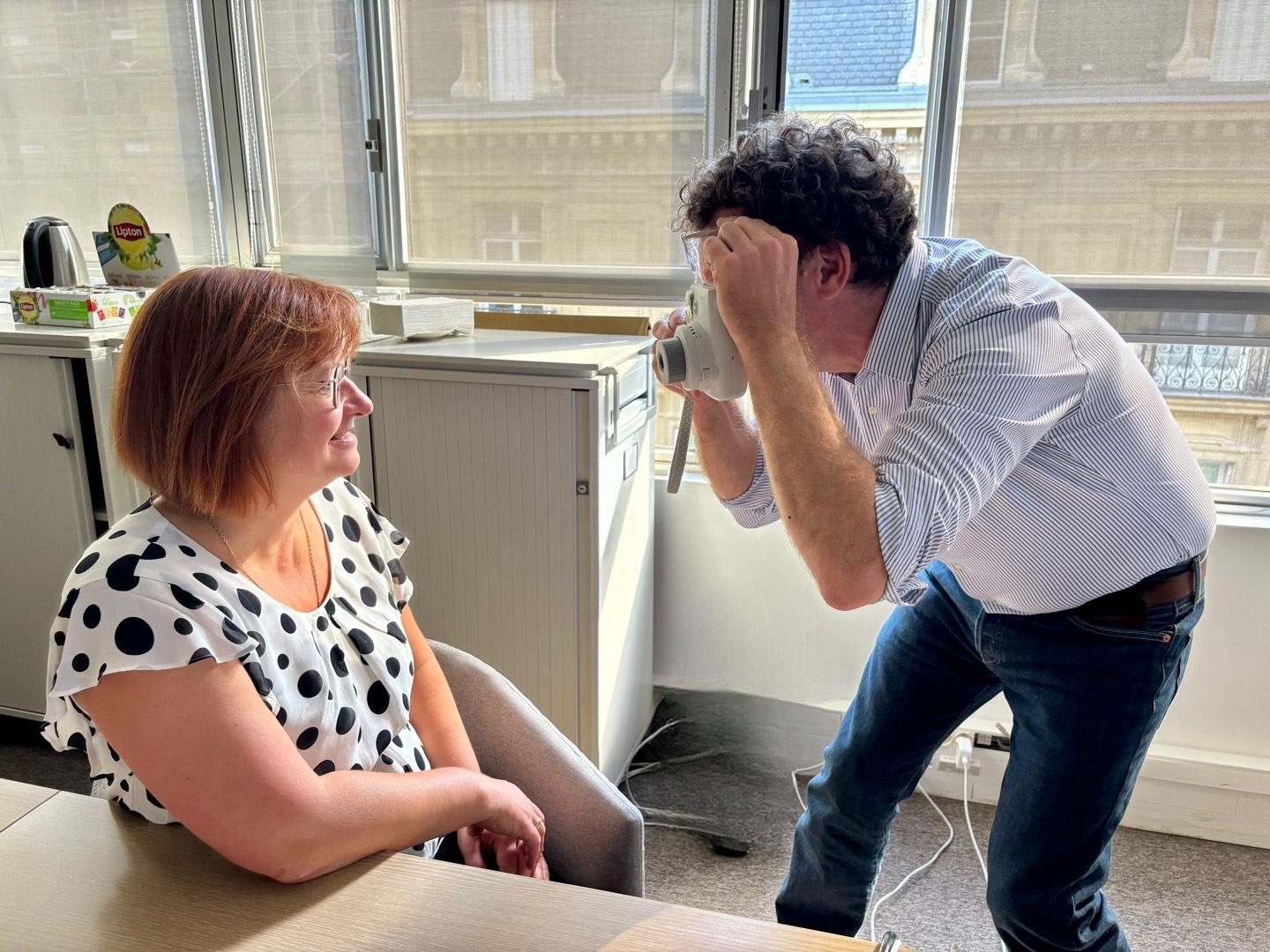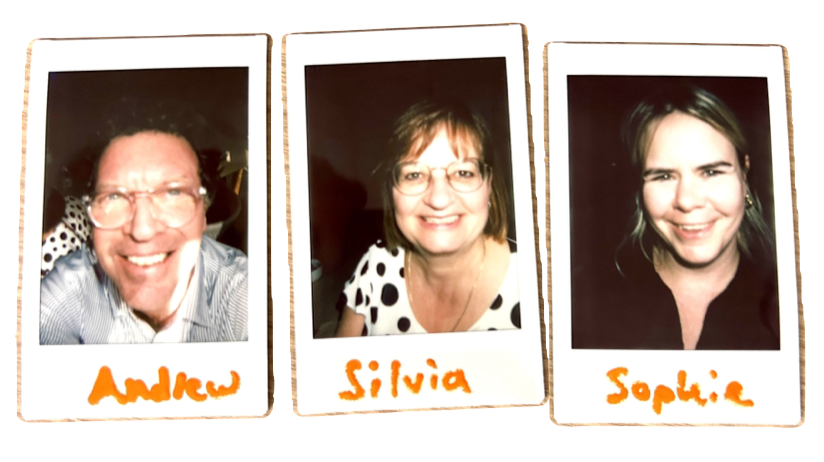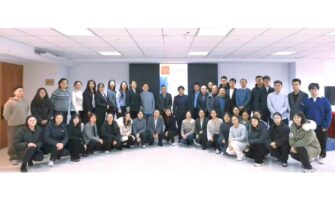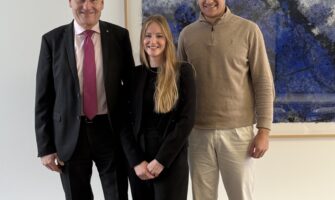30/09/2025
Member-first conference design
Events
Andrew and Silvia preparing the TGS annual conference
I just spent 48 hours with Sophie and Silvia, the core team of TGS Global, completely redesigning our Bangkok conference. We drank strong coffee, took unflattering Polaroid photos, and systematically dismantled the traditional conference model that everyone claims to hate but no one seemed willing to kill.
What happens after the conference ends?
Not “what will they remember?” Not “what will they enjoy?” But what will they actually do on Monday morning when they’re back in the office, staring at their inbox, wondering why they spent three days and several thousand euros listening to people who’ve never run a firm tell them how to run a firm.
Our recent member survey was clear. TGS members are fed up with soft skills training. They’ve had enough motivational speakers who’ve never had to explain to a client why a “simple” request will take three weeks and cost twice the estimate. They want discussions that matter, with people who understand what it’s like to chase invoices, manage difficult partners, and wonder if that new associate actually knows anything beyond PowerPoint animations.
So we built something different.
The problem with most conferences
The traditional conference model is fundamentally broken. A keynote speaker with impressive credentials tells you what you should do. You nod thoughtfully. You take notes you’ll never read and screenshot the slides. You network awkwardly over snacks then you fly home (with or without a hangover) and nothing changes.
Knowing what to do and actually doing it are separated by a black hole called “Monday.” Most conferences ignore this gap.
We spent two days designing a conference that bridges this gap. Every session ends with commitments, action plans and templates members can use immediately. Each session also has a support course and group on our learning platform, TGSU.
Here’s what emerged from our Paris conference design room
Members pitch their own expertise to each other. Not us talking at them about what they should know. Them demonstrating what they actually do well. This isn’t networking or speed-meeting—this is an international marketplace of proven competence.
Technology debates with implementation deadlines. We’re not discussing whether AI will change professional services (it will). We’re deciding which specific tools to adopt in the next 90 days, publicly committing to doing it and offering network support.
Problem-solving workshops on real frustrations. The referral system that doesn’t quite work. The compliance burden that’s crushing profitability. The advisory services everyone talks about (what even is advisory?) but no one can define. We’re solving these problems together, with accountability built into the process.
Public commitment rounds. At the end of key sessions, firms state—out loud, in front of witnesses—what specific actions they’ll take in the next quarter.

The Polaroid test
We’ll be taking Polaroid photos of you during the conference. Not because we’re nostalgic for the 1990s, but because there’s something about a physical photograph that captures whether people are actually engaged or just professionally present.
Those Polaroids will show that this is a network that doesn’t just organize events. We’re designing experiences that can help turn insights into action, connections into referrals, and discussions into concrete business development plans.
Sophie and Silvia brought something I can’t manufacture on my own: the ability to challenge every assumption. When I suggested something that sounded good but wouldn’t actually work, they called it out. When we found an idea that genuinely solved a member problem, we built it into the structure.
This is collaboration. Not consensus-building. Not compromise. But smart people pushing each other to design something better than any of us could create alone.
This matters beyond Bangkok
Professional services firms are drowning in advice from people who’ve never had to explain to a client why their “simple” request will take three weeks and cost twice the estimate. We’re told to be more like tech startups, despite the fact that our clients are usually decades-old businesses who want reliability, not your latest app idea.
Most management consultants charge 500+ an hour to tell you to “embrace digital transformation” while your biggest client still insists on faxing documents (slight exaggeration). The gap between your LinkedIn motivational posts and your actual Monday morning reality keeps growing.
Our TGS conference model directly addresses this gap. We’re not bringing in outside experts to tell you what you should do. We’re creating a structure where experienced practitioners (you) help each other solve real problems, with built-in accountability to ensure implementation actually happens.
Bangkok in November
We are working with you. Commitments are replacing insights and action plans are replacing aspirations.
Professional services isn’t about pivoting to the latest (or reheated) management fad that you often hear about in conferences. It’s about being so good at what you do that clients keep coming back, even when you occasionally tell them uncomfortable truths.
The Bottom Line
The best conferences are built by people who understand the actual problems that need solving, and who have the courage to discard every traditional conference element that doesn’t directly address those problems.
Sophie and Silvia—those Polaroids are going on my wall as a reminder that the best work happens when smart people challenge each other to do better.
The conference model is built. The commitments are structured. The accountability mechanisms are ready.
Now we find out if our members are actually serious about transformation, or if they just want another conference where they can nod thoughtfully and change nothing.
Bangkok will answer that question.
There's still time to register for Bangkok.
Warning: this conference will make you uncomfortable (and that’s rather the point).



